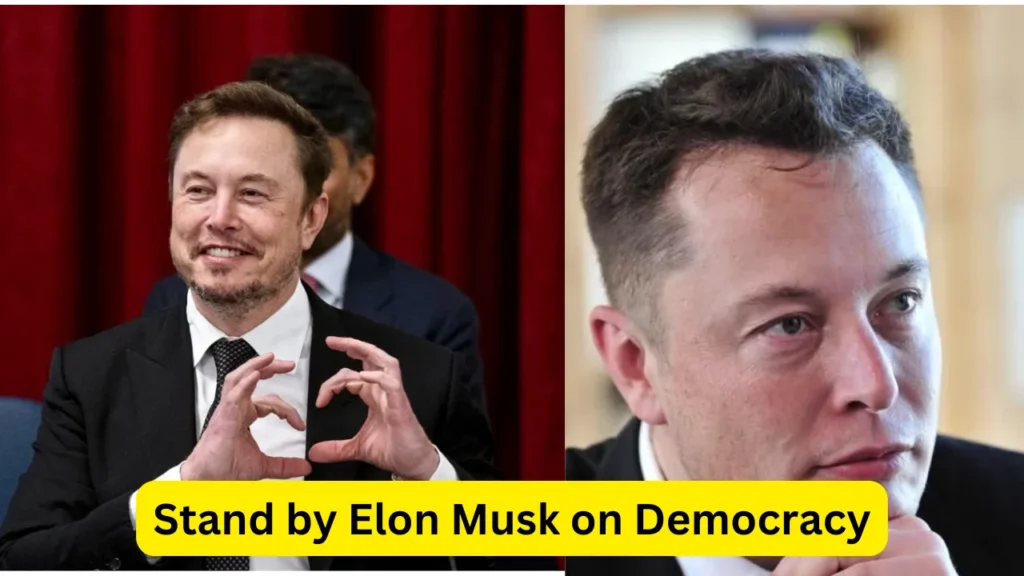Recently, Elon Musk caused controversy after stating that critics of former US President Donald Trump are more dangerous to democracy than the former president himself. Such a statement was posted in social media and news websites, causing a heated debate among many with some agreeing with his stand and others questioning him. Being one of the leading voices for technology and free speech, the opinion by Musk will be quite influential in giving a unique dimension to the discussions ongoing regarding democracy, freedom, and political bias.
Elon Musk on Free Speech and Democracy
It will be remembered that Musk is an avowed free speech and open discussion proponent. When he took ownership of X (previously known as Twitter), he reiterated that the need for heterogeneity in opinion should remain at the forefront. When it comes to this instance, he claimed the critical voices against Trump may compromise democracy. Here, silencing such voices as Donald Trump’s threatens democratic society.
He maintains that a healthy democracy thrives on open discussions, including opinions that are unpopular or divided. The claim of Musk points to a greater issue: the issue relates to whether efforts made to silence or discredit some political figures like Trump represent a form of ideological intolerance which may harm democracy.
Table of Contents
How Critics of Trump Can Threaten Democratic Principles
One needs to delve pretty deep into the politics of dissent and the muscle of the media to appreciate the thrust of Musk’s argument. Trump’s critics – whether from the mainstream media and politics – would have it that his rhetoric and policies are destructive and anti-democratic. Here, Musk believes these detractors can overstep the bounds and seek to muzzle or silence Trump and his followers.
As Musk puts it, “democracy requires toleration of all voices” because all voices may occasionally challenge the status quo. For this reason, he argues that the vociferousness of the anti-Trump sentiment would, perversely, damage at the root the heart of the democratic ideals by such ferocity to make one coherent storyline where the opposing voices seemed inacceptable and therefore push into hiding. The precedency established here, argues Musk, by institutional biasing in the name of defending such democratic principles through muffling the conservative or dissident voice would be cause for grave concern.
The Role of Media and Tech Platforms in Shaping Public Opinion
Musk also condemns the influence of media and tech platforms in the shaping of public opinion. He believes that the said platforms can, and most of the time, act as gatekeepers of information, showcasing certain views while relegating the rest to the fringes. This is very apt for Trump, who had received much attention and restriction by many media channels. Musk’s argument is that, if media and tech platforms continue to selectively amplify voices, they risk creating an echo chamber that could alienate segments of the population and weaken democratic discourse.
The concern by Musk is not isolated. Many Americans share the perception that media platforms exercise disproportionate control over which viewpoints are given prominence, raising questions about media neutrality. In the eyes of Musk, this selective representation can tilt public opinion and stifle the diverse perspectives that are fundamental to democracy.
Balanced Dialogue in a Polarized Society
In that regard, the comments made by Elon Musk reflect the growing division of American society, in which political polarization has hit the highest point ever. Protection of free speech, according to Musk, even on figures like Trump, would ensure a balanced democratic landscape. A democratic society would be able to handle all ranges of viewpoints without recourse to censorship or suppression, said Musk.
While Trump remains a very contentious figure, the real threat for Musk is that using social and media outlets for silencing voices can make it much easier to dilute and undermine the democracy of free speech while augmenting polarizing sentiments and actions.
In that respect, the statement made by Elon Musk, saying critics of Donald Trump might represent an actual threat to democracy, is an indicator of how free speech is finely balanced with political accountability. Musk said democracy succeeds due to the incorporation of varied viewpoints, even those most offensive or objectionable. In Musk’s view, the situation evokes a needed debate over navigating political discourse, media influence, and the responsibilities of tech platforms.
As the debates on democracy and free speech continue, Musk’s message reminds us of the very critical importance of open dialogue. One may agree or disagree with his assertion, but certainly, it is a perspective that shakes the status quo and forces reflection on how we might protect democratic values in such a deeply divided society.
More Information To Visit Home Page

